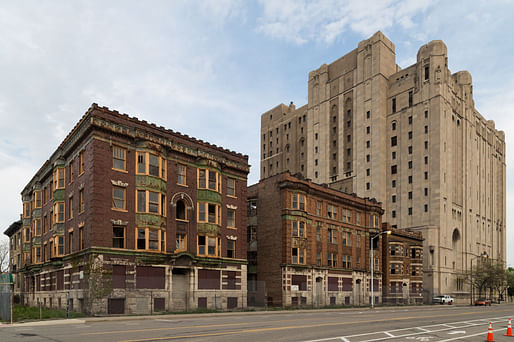

Gentrification. It is a word that we hear with increasing frequency in contemporary discussions about American cities. But what does that word really mean? And, even more importantly, what does it mean in the context of the region that I live in and love – the Rust Belt? [...]
It is important to be clear about the meaning of this increasingly ambiguous term, because what needs to happen in the vast majority of urban neighborhoods in the legacy cities of the Rust Belt is far less ambiguous.
— City Observatory
"Many critics of Rust Belt gentrification are holding cities to an unreasonable standard, and placing them in an impossible situation. If much of the city remains poor and run-down, this is proof that the city does not care, and is not trying hard enough. If, on the other hand, parts of the city begin to attract new residents and investment, this is proof that the city does not care, and is not trying hard enough. Heads I win. Tails you lose."
City Observatory published a commentary piece by Jason Segedy, Director of Planning and Urban Development for the City of Akron, Ohio.
4 Comments
Ooooboy. [more after the break]
I've never understood the problem with re-investing in our cities. The main problem seems to do with a lack of supply, not the actual renovating and reinvigorating deteriorating cities. Beautiful photo!
I'm curious to hear your take, b3ta. In my reading this article mainly says urban change is complex, and if we want to be careful about urban investment providing opportunity across all economic classes we need to allow both private and public influences to combine.
My example point in this would be that public investment in transit is a HUGE driver of private investment, and there's nothing wrong with private developers being then required to meet certain public desires (affordable units, urban amenities, sustainable goals, infrastructure improvements) when they reap the windfall of real estate value a public transit system provides. This isn't rocket science, but it *is* a careful, fair, boring, and systematic approach that is usually reviled by "free-market" fans who want all investment to be no-strings-attached.
The key is to keep a wide variety of housing in neighborhoods that gentrify/ redevelop. In Chicago we are suffering the negative effects of gentrification in the media and in the very local politics of zoning and parking. When people are forced out of a run down or under developed building site for a new development it makes news and puts a human face on an immediate problem. What doesn't get in the headlines is that the new development will often have more "affordable" housing than the rundown underdeveloped place had. The pain of gentrification in Chicago, and I imagine other places, is the disturbance of individuals for the years long process of building a new building that replaces existing housing and or businesses. When it is a clear vacant site it is not so hard but when people have to be moved when they would rather not then gentrification sparks political and social economic conflicts. Avoiding these conflicts would require a more nuanced approach to dealing with the existing people, sequencing developments so that the displaced from one site can move in and stay in their neighborhoods would be one strategy but it requires political will. Gentrification becomes a problem when the vacant space is developed and the remaining opportunities for growth involve moving people and businesses. Detroit, many rust belt cities and may neighborhoods in Chicago still have a lot of space for gentrifcation before people have to be moved to accommodate new development and growth. Establishing a plan early on to keep residents in the neighborhood could alleviate the sting and the conflict and take away the thunder from the NIMBY crowds unreasonable and often detrimental goals of never allowing anything to change or grow in a city.
Having a variety of housing, and a plan to keep folks in their neighborhood before things get built is key.
Over and OUT
Peter N
Block this user
Are you sure you want to block this user and hide all related comments throughout the site?
Archinect
This is your first comment on Archinect. Your comment will be visible once approved.